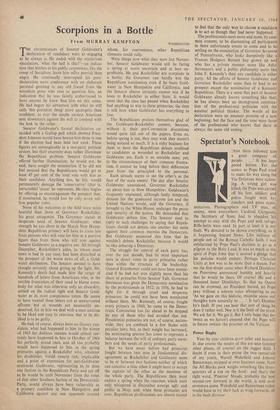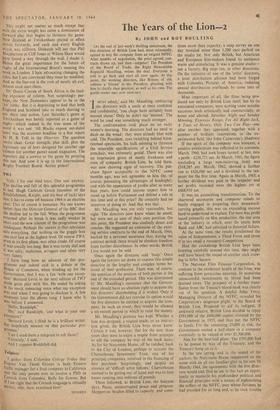Power Rugby Year by year children grow taller and heavier.
Ir. due course the results of this are seen (among other places, of course) on the rugger field. doubt if even in their prime the two immortals of my youth, Wavell Wakefield and Johnny Bannerman, stripped at over fourteen stone. Now the All Blacks pack weighs something like three- quarters of a ton on the hoof: and that's the right word. Tinetree' Meads, probably the best second-row forward in the world, is well over seventeen stone. Wakefield and Bannerman today would have to try their luck as wing forwards, or in the back division 'phis might not matter so much except that with the extra weight has come a dominance of forward play that begins to threaten the game. New Zealand at Twickenham played in effect eleven forwards, and each and every English attack was stillborn. Diehards will say that Phil Macpherson or Cliff Jones or Wilson Shaw would have found a way through the wall. I doubt it. Hence the great importance for the future of rugby of the International Board's meeting this week in London. I hate advocating changing the rules, but I am convinced they must be modified. And as the line-out is the root of nearly all evil, reform must start there..
Dr. Danie Craven of South Africa is the lead- ing exponent of reform. Not surprisingly per- haps, the New Zealanders appear to be in the no' lobby. But it is depressing to find that both England and Scotland take so much shoving to stir them into action. Last Saturday's game at Twickenham was barely reported as a game of rugby—which indeed in the true sense of the word it was not. 'All Blacks expose out-dated laws was the accurate headline to a fine report H. B. Toft in the Observer. The question seems clear. Great strength, plus skill, plus the legitimate use of laws designed for another age (almost for another game) equal stagnation. The reporters did a service to the game by pointing this out. And now it is up to the International Rugby Football Board. Action please!



































 Previous page
Previous page